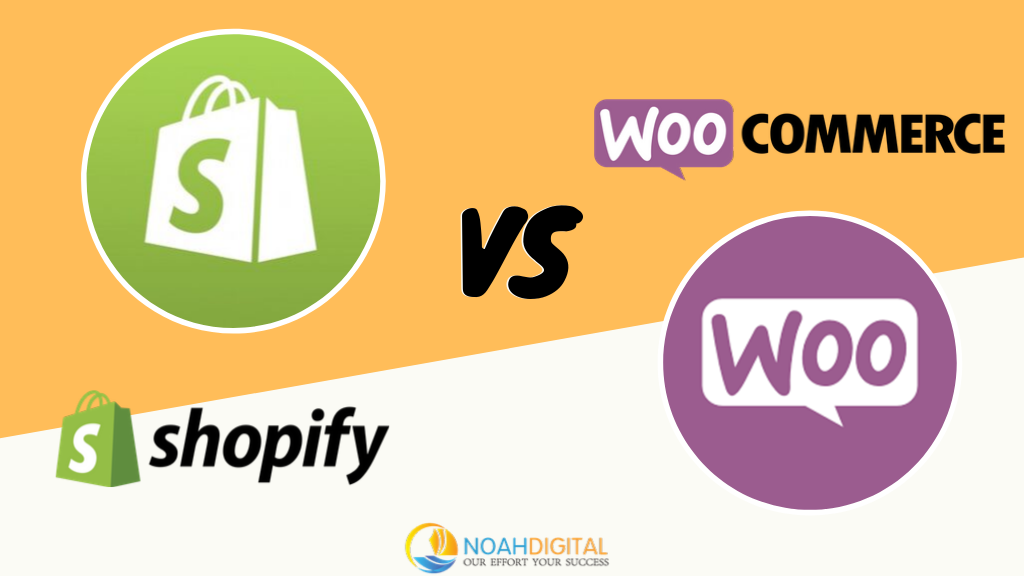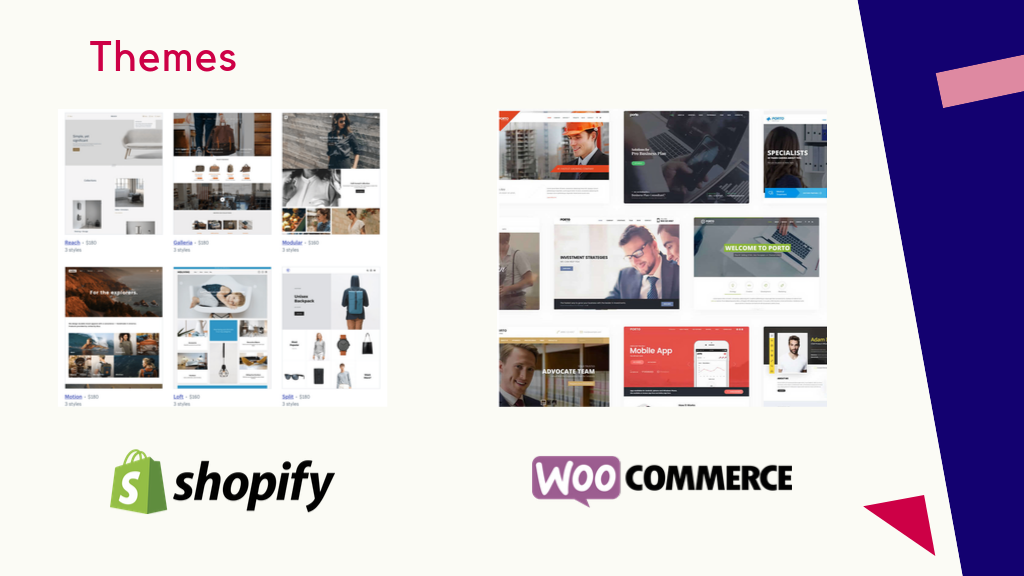Shopify vs WooCommerce is a common but crucial decision when starting an online store.
Shopify and WooCommerce are the two most popular eCommerce platforms amongst online business owners, as they provide an easy-to-use interface and superior store capabilities. Each has its unique strengths and can be the right eCommerce store-building tool for you.
But before you start looking for answers, you should know that your eCommerce store must be built not just to please you, but to make it easier for your customers to make a purchase.
What to Consider When Choosing an eCommerce Store Builder
According to the latest stats, WooCommerce has a significant market share; being used by 25% of the top 1 million sites, while Shopify comes in as a close second with 20%.
Here are some questions you need to ask yourself before settling on a specific provider:
– Can You Afford It?
WooCommerce is a free-to-use plugin, but then you have to factor in other costs of building an online store. There’s hosting to pay for and you’ll have to buy a domain, a theme, additional extensions as well as an SSL certificate for added security.
On the other hand, Shopify charges you upfront, but then it offers a quick and reliable out-of-the-box solution. Choose the right pricing package according to your needs and your new online store can be set up with just a few clicks.
Look at both the platforms and the different tiers they offer – the bigger your business and the more functionality you need from your online store, the more expensive your package will be.
– How Soon Can The Site Be Built?
There is no denying the fact that you’ll need professional help from an eCommerce site developer for some custom build-outs. Consider their timeline, which can go from a few weeks to several months, depending on the level of work required.
If we only regard the initial sign-up and setting, Shopify should win this round hands down as it’s easier to get started with.
– Do You Like the Available Templates?
Explore the templates available on each platform to see if it has what you need. Both Shopify and WooCommerce offer an excellent selection of themes for users.
If you don’t like the options currently available, you may need to have a custom theme developed for your online store – but this can significantly add to your costs.
– Is It Fast and Secure?
High-level security should be a priority when building your online store. After all, you’ll be processing credit cards and holding personal information of your customers.
Shopify takes care of the security for you; they’ve put in strong measures to deter hackers and handle any security breaches quickly and effectively. This platform also has better loading time and stronger site performance thanks to its dedicated servers.
WooCommerce leaves a lot to be desired in this aspect as it doesn’t come with any built-in security specs and works only on a self-hosted WordPress site. So, you only have the server-side security to count on, or you’ll have to handle the security yourself – for example, you’ll have to buy an SSL certificate if you opt for this platform (Shopify does it for you!).
– Do They Offer Quick and Reliable Support?
As you set up your store, you are bound to run into hiccups that even your developer may not be able to fix. The service you choose must offer reliable support to make your migration to eCommerce as smooth and glitch-free as possible.
There is nothing worse than needing help and not knowing where to find the answers. That would be the case if you are using WooCommerce, as the platform doesn’t offer call support or any other way of sorting out user issues quickly and effectively. While there is a user forum for this purpose, it can be tedious to go through to search for answers.
Shopify offers 24/7 support via phone and email – this means that their representatives are always available and have answers that you need. They also guide you on how to fix technical issues in a step by step manner.
Shopify – Why You Might Like It
This platform doesn’t present much of a learning curve; if you are good at navigating your way around the internet, then you can quickly learn how to operate it.
Shopify comes prepackaged with more than 70 themes to make your online store look as attractive to buyers as possible.
There’s also a customer re-engagement tool that sends out email reminders to your prospects anytime you put up a sale. Overall, these features make Shopify a good option for startups and those new to the world of eCommerce.
More importantly, you can easily scale up on the Shopify platform, so your website grows alongside your business.
(A glance at Shopify and WooCommerce templates)
WooCommerce– Why You Might Like It
The best thing about WooCommerce is that it can integrate seamlessly with your existing WordPress website. It is free and does not have a monthly fee – this makes it a good option if you’ve just started your online business and don’t have many products.
Another advantage of WooCommerce is that it simplifies taxation for online businesses – in other words, you’ll never have to worry about charging the right taxes from your buyers if you use the geolocation support tool and tax calculator that comes with it.
The Last Word
Whether you are selling products or services on a small scale or building a global website to rival Amazon, you need one of these services on your side. It is essential to choose carefully as you may have to stick with one platform for a long while.
Just remember, since WooCommerce is a free plugin, it is a good option for new businesses. However, Shopify gives you more control over how to market and scale your eCommerce store.
At Noah Digital, we understand that it can be overwhelming to make such a big decision and settle on a platform. Our website design experts are here to help you make the right selection, maximizing the potential of your eCommerce store to its fullest.
We understand that eCommerce websites are unique and dynamic, and that’s exactly why we provide specialized expertise in features and functionality that keep your store agile at all times.
Our team would love to discuss your business’s needs and deliver solutions that are perfect for your brand and eCommerce goals.
Get in touch with us today to find out more.



